Congress
Side event of the HSF Korea at the World Forestry Congress in Seoul
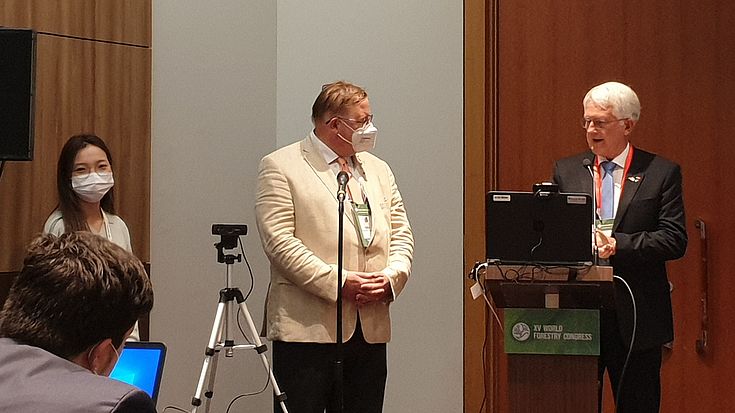
On May 6 at 12:00 pm, HSF Korea invited to several lectures on afforestation on the Korean peninsula and worldwide. The event was moderated by Dr. Bernhard Seliger, representative of HSS Korea. The President of the German Forestry Council (DFWR), Georg Schirmbeck, gave a short welcome speech. He mentioned that the German forests also need to be supported, which is why he and the other members of the DFWR are curious to see what ideas and approaches are being pursued in Korea.
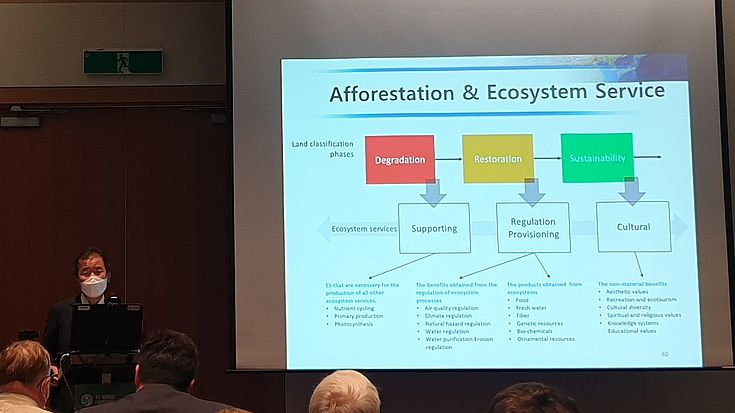
Prof. Woo-Kyun Lee, Director of the Ojeong Resilience Institute at Korea University, was the first of the four speakers. His topic was the lessons that can be learned from re-/afforestation in South Korea. Therefore, he first talked about the beginnings of reforestation in Korea, which started in 1967 when the first forestry agency was established as part of the Ministry of Agriculture and Forestry. Since 2002, Korea has been practicing sustainable forestry, as more trees are planted than cleared. According to Prof. Lee, there are three phases of afforestation that urge different measures. Phase one, Degradation, requires enormous support to strengthen the ecosystem, whereas in the Restoration phase, the ecosystem is regulated and resources such as water and food can be tapped. In phase three, sustainability, people can also benefit from non-materialistic advantages. Finally, Prof. Lee presented a short plan showing how to strengthen the forest in North Korea future-oriented.
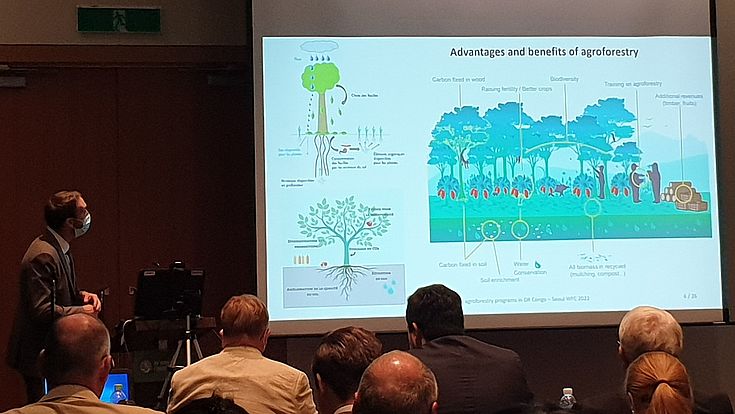
To provide an external perspective, Pierre Clinquart, Project Manager of HSF DR Congo, then gave a presentation on agroforestry in the Democratic Republic of Congo. The agro-economy program there is not only supported by HSF DR Congo, but also by the European Union. The aim is to combat the prevailing poverty in order to increase household income and guarantee food security to enable sustainable development in rural regions. It also aims to achieve resilience to climate change by adapting agriculture to produce both food and charcoal. Moreover, trees offer numerous advantages for sustainable development, as they increase soil fertility and allow long-term management of agricultural land. Both the environment and people benefit, as energy generation from wood is green and the overall living conditions of the population can be improved. For all this to work, it is important that the different stakeholders are in dialogue with each other and are clear about their rights and duties. In addition, local authorities need to be involved and the land needs to be fairly regulated by the state, explains Mr. Clinquart.
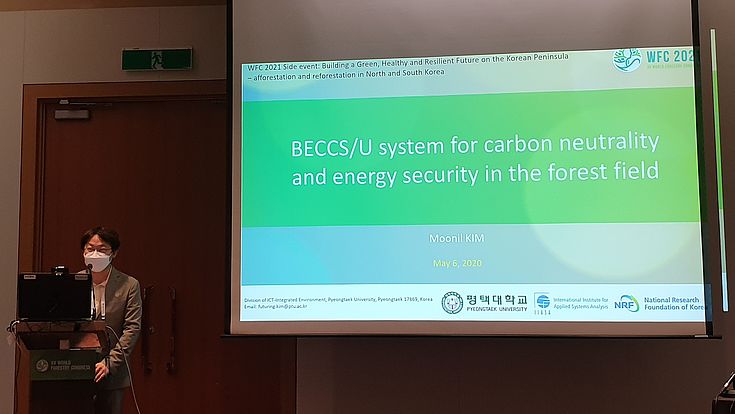
In the following part, Prof. Moon-il Kim of Pyeongtaek University conducted the presentation. His topic is "BECCS/U System for Carbon Neutrality and Energy security in forest field," which first introduced basic knowledge of this system and then detailed case studies in Korea. The current state of forest growth rate in Korea was also mentioned, indicating that Korea has a relatively high figure compared to other countries. He also introduced the KO-G-Dynamic Model, which is used to calculate forest cultivation and sustainable biomass extraction rates. Lastly, the spatial database and the various challenges and difficulties faced by South and North Korea in this area were briefly explained.
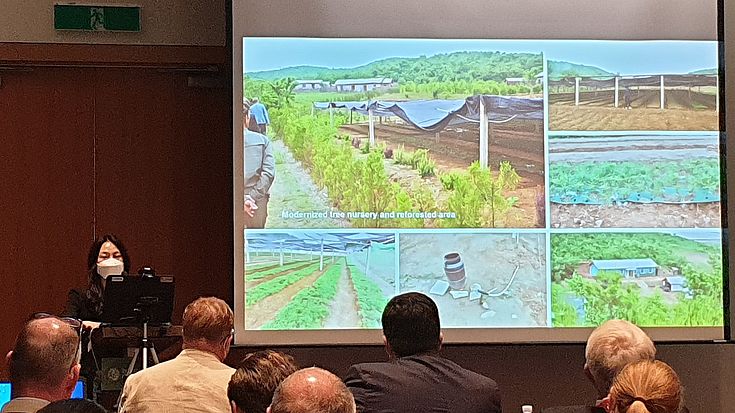
The last presenter was Dr. Hyun-Ah Choi, senior researcher at HSF Korea. Under the theme of "North Korea’s Forest Planting with the International Community," Dr. Choi put forward a question - why North Korea needs forests. In addition, she highlighted the forestry activities that HSF has been carrying out since 2014 in cooperation with the Ministry of Land and Environmental Protection (MoLEP).
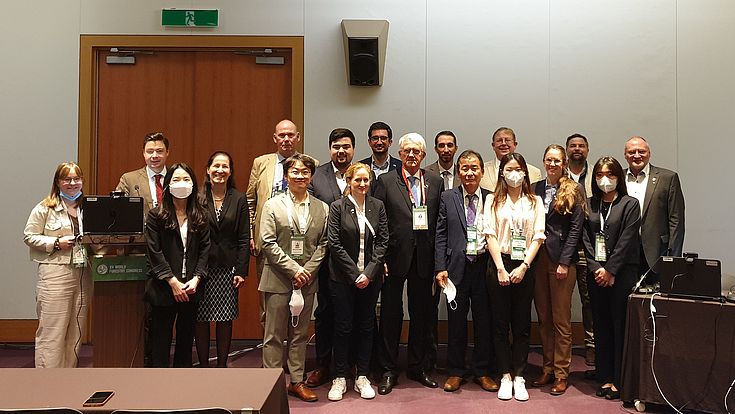
After the presentations, Dr. Seliger thanked the speakers for their interesting and informative presentations and thanked the German Forestry Council and its President Georg Schirmbeck for their visit.
